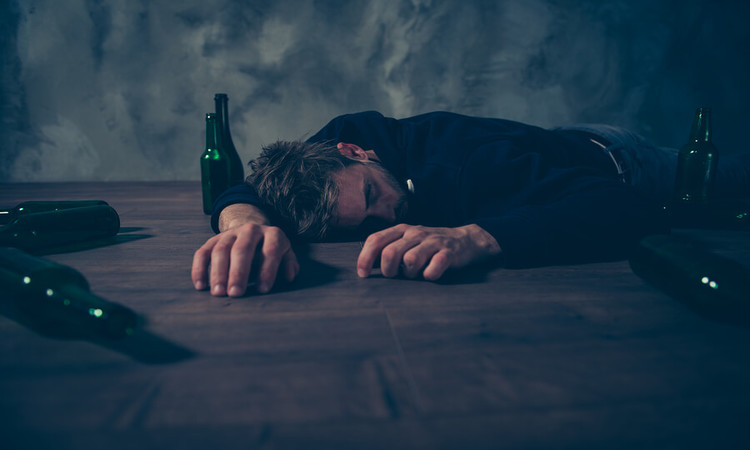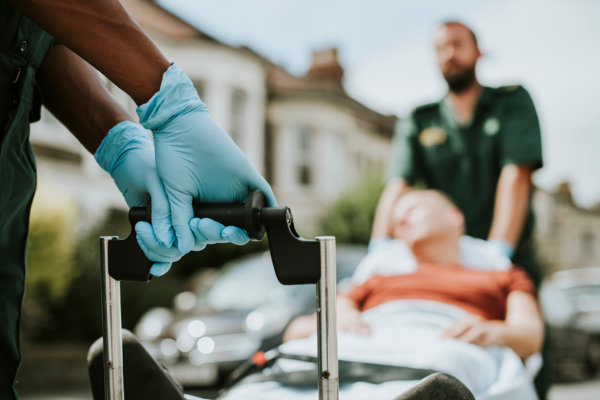
Binge Drinking Effects: 5 Unwanted Problems – Binge drinking is among the most common patterns of alcohol abuse in the U.S. Like alcoholism, binge drinking is preventable and treatable if it does occur. And, like full-blown alcohol addiction, it is still a very destructive habit, and the effects can be serious.
Binge drinking is defined as the consumption of alcohol in excessive amounts within a finite period, which could be anywhere from hours to days. People who binge drink also go for extended periods between drinking episodes, ranging from days to weeks. Binge drinking is comparable to social drinking, except people consume much more alcohol, so the consequences tend to be more severe.
Binge drinking not only affects the individual but also affects those around them. Those who binge drink, particularly for a prolonged period, face a higher risk of developing side effects and incurring social, legal, and financial troubles as a result.
Binge Drinking Effects
Binge drinking effects are numerous, but aside from the classic hangover and regrets the next day, the most common and undesirable effects include the following:
1. Drinking and Driving
Operating a vehicle, such as a car, truck, motorcycle or boat after consuming too much alcohol is a serious crime. Driving under the influence (DUI), driving while intoxicated (DWI), or Operating While Impaired (OWI) involves operating a motorized vehicle with a blood alcohol content (BAC) level of 0.08% or higher.
The group most at risk for drinking and driving are those who binge drink or are suffering from an alcohol use disorder (AUD). It takes around 30 minutes to two hours for alcohol to be absorbed into the bloodstream. During this time, breathing may be reduced, cognitive skills may be delayed, and motor skills may become impaired, thus making the choice to drive a dangerous one.
2. Accidental Injuries
By definition, binge drinkers drink a large amount of alcohol during each session. During abstinence, their level of tolerance decreases again, and this results in a higher chance of getting more intoxicating than if they were to drink consistently.
Because it is a central nervous system depressant, as a person consumes more and more alcohol, their vision becomes distorted, thought processes become skewed, decision-making skills go out the window, and ability to function correctly diminishes. Globally, there are more than five million deaths from alcohol-related injuries reported each year.
The most common alcohol-related causes of death include the following:
- Falls
- Drowning
- Alcohol Poisoning
- Drunk driving-related injuries
- Acts of violence against oneself or others
Because alcohol impacts the brain and motor functions quickly and negatively, anyone who drinks in excess – be it chronically or occasionally – is at significant risk for experiencing these consequences.
3. Alcohol Poisoning

Alcohol poisoning is always caused by some form of excessive drinking and is one of the most dangerous side effects of heavy alcohol consumption. As the amount of ingested alcohol increases, the more likely it becomes that a person will experience symptoms of alcohol poisoning. Essential bodily functions begin to decline rapidly when alcohol is abundant in the system.
Alcohol poisoning can be quite severe, depending on the amount of alcohol consumed. An overdose of this nature is more common among drinkers with a lower tolerance to alcohol, such as binge drinkers.
Because alcohol enters the bloodstream and courses throughout the whole body, regions of the brain that control basic but critical bodily functions such as breathing, heart rate, and temperature begin to shut down. Alcohol poisoning can result in unresponsiveness, coma, and, if left untreated, death.
4. Memory Blackouts
A blackout is characterized by memory loss due to alcohol or drug abuse. It is most common among those who have drunk too much alcohol. Blacking out from drinking can occur when a person’s blood alcohol content (BAC) reaches 0.15 or higher.
Blacking out does not mean that a drinker becomes unconscious, passes out, or falls asleep. Rather, people continue to interact with others, engage in regular or potentially hazardous behaviors, and even continue to drink more. People who blackout may drive themselves home, participate in a sexual encounter, spend too much money, physically injure themselves or others, or engage in other risky behaviors.
5. Liver Disease
Among the most severe consequences of long-term alcohol abuse are chronic conditions such as liver disease. There are three types of liver disease associated with alcohol consumption: fatty liver, alcoholic hepatitis, and cirrhosis.
Fatty liver disease can occur after acute alcohol ingestion (such as binge drinking) and is generally reversible with abstinence. A fatty liver does not appear to predispose a patient to any chronic form of liver disease if abstinence or moderation is maintained after the initial condition has improved.
Alcoholic hepatitis is another acute form of alcohol-related liver injury that occurs with the consumption of a large amount of alcohol over an extended period. Alcoholic hepatitis effects can be asymptomatic, ultimately lead to liver failure and death, or fall anywhere in between.
Cirrhosis is a chronic disease that involves the replacement of normal liver cells with extensive, thick bands of fibrous scar tissue, which can eventually lead to portal hypertension and liver failure.
Getting Treatment for Binge Drinking
Binge drinking can damage one’s life, health, and relationships. Fortunately, alcohol use disorders are treatable, and it’s never to late ask for help and begin the journey to recovery.
Recovery By The Sea can help you or some close to you regain control of life. If you or someone you know is actively engaging in binge drinking or suffering from alcoholism, contact us today to discuss treatment options. Our trained professional staff can help you find the right treatment program to suit your personal needs and provide you with the tools you need to achieve long-lasting wellness and sobriety!